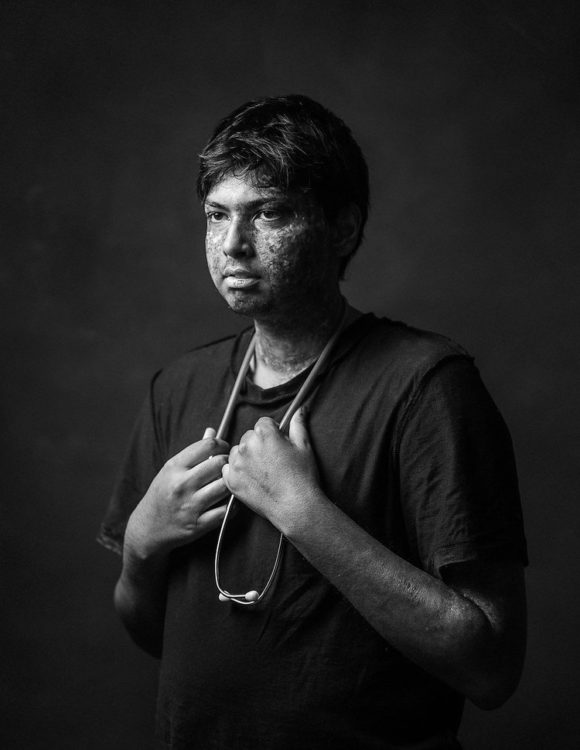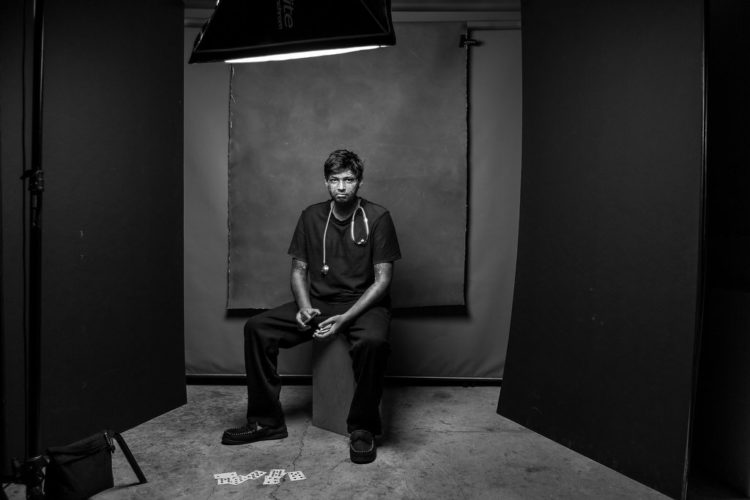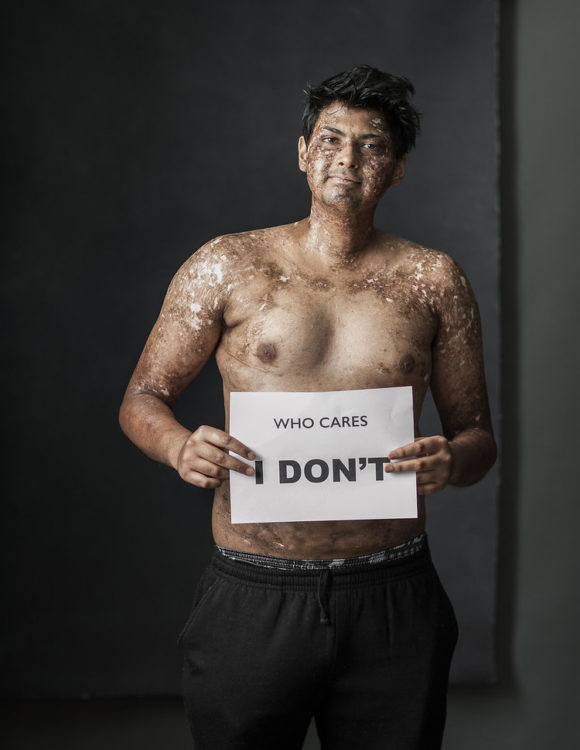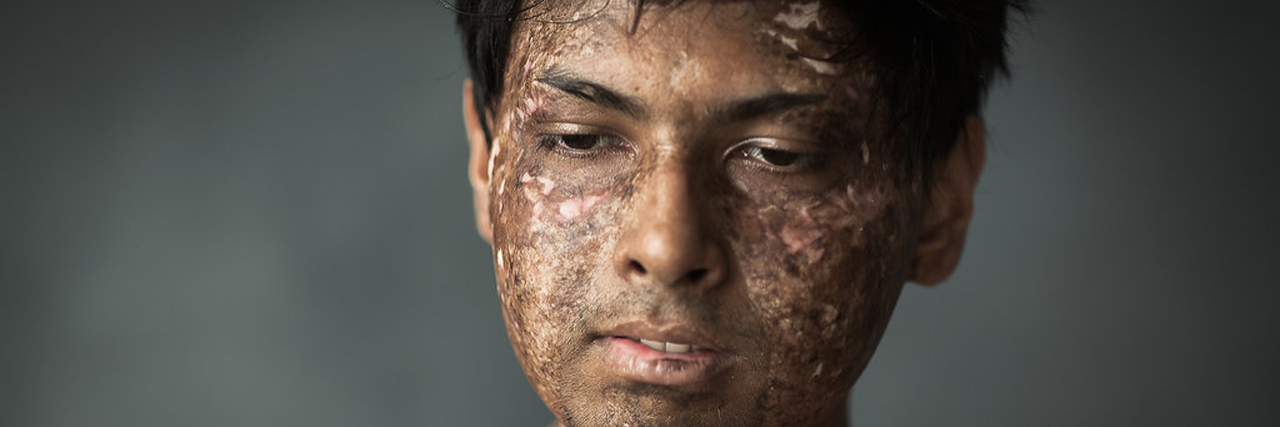I was diagnosed with leukemia at 17 and given a 10, maybe 20 percent, chance of living.
And I was devastated… as any human being would be. But after a while I started to dislike that feeling.
The constant depression.
The tears.
The gut-clenching dread.
I wanted this to all be over. I wanted a way out of the hole that I’d found myself in. But with chemotherapy, uncertainty, and probable death in my future, there wasn’t much to really look forward to.
In the end, what ended up helping me most wasn’t this spark of inspiration or willpower or bravery after watching some inspiring talk or reading some book. The words of everyone around me felt hollow.
What did they know about what I was going through, after all? I was 17, and had just been told I probably wouldn’t live to see 22.
What really helped me was a simple thought process I did after just being sick of that angst.
I decided, “Why not take a step back and looked at what had happened to me, as if it had happened to someone else.”
From there I guess I saw everything that had happened to me objectively. So I could finally question everything that was going on and more importantly, how I was dealing with it.
And I did that through asking why. Why was I feeling that way?
There was no answer. In the end I realized I had what I had. Though it may suck, I couldn’t go back in time and change what had happened. I couldn’t take away my cancer.
So, what was my anger and frustration accomplishing? Nothing. Other than making me feel worse about everything.
Why was I feeling that way then? In the end, it was coming from me, my brain. Why was I doing that to myself?
I didn’t have an answer for that.

But that question alone made me realize one thing that stays with me to this day. Because if all of that was coming from me, my brain, my mind… that meant I could take that away, too.
In the end, we will always have the final say on how we deal with things. At the very least, we’ll always have a second way of looking at things.
But we’re only human, right? And with months to years of chemo, pain, treatment — all of which is likely leading to me dying anyway — there wasn’t much to look forward to, right?
So I questioned those fears and doubts, too.
Again, one question got me through that — Why? Why was I thinking I was cursed for being diagnosed so young?
My doctor’s words as this happened rang through my head as I heard this. When I was diagnosed he told me, “The good news is, you’re 17 and you have leukemia, but the bad news is, you’re 17 and you have leukemia.”
Good news? “Good news? Really dude!” I remember thinking for a while after that.
But when I thought about it, being diagnosed young meant I could get the optimal treatment — I could recover faster. I didn’t have a job or a family or kids to worry about. Indeed, I had one right there beside me the whole way!
What I once thought was a curse turned out to be a blessing. But why was I so afraid?
I was looking at chemo as a thing that brings pain and misery. And it would. And that sucked.
But wasn’t it also a medicine? The very thing that could get me out of this? Indeed, my doctors wouldn’t be putting me through this if they didn’t think it could work.
Why was I so pissed off, afraid and depressed?
In the end, I was worrying about all these things I couldn’t control. And that worry and stress were only hurting me more.
From stepping back and looking at my situation objectively I could see the only logical thing to do was to focus on the things I could control.
My health.
My actions.
My happiness.
Because what this has taught me is you will always have a second (better way) of looking at things. Always.
It’s not easy to see that straight away. Definitely not if you’re overwhelmed and in the midst of it. Depression makes that harder, too.
But if you can take a step back, talk about it with someone, and just ask, “Why?”’ You can get yourself through just about anything and become the happiest, most successful version of yourself.
It doesn’t take courage. I wasn’t brave or inspiring in my “battle” (in truth, it was a beating) with cancer.
I cried, I wailed for it to be over. I still do sometimes. (Beating cancer isn’t always the end of pain for many survivors. Depression came, too. It’s something I face, and I write about it here as well as on my own blog). But I kept in mind these things — what it was all for — and by doing that I saw something good in the darkest days of my life.
You don’t need some superhuman willpower or positivity, either.
Because in the end, if you can take that step back, and ask why… if you can help your friends and family do the same… then it becomes only logical. It only makes sense to take the path that leaves you most well-off.
And I hope what I’ve said can help you do this.

One place where I think I’ve done this after cancer, against something which some of you may be feeling (whether you’ve had cancer or not), is with my social anxiety post-treatment.
You see, before cancer (not to brag or anything) I was quite a hunk (at least I thought I was). I wasn’t too fussy about how I looked but was a little, just as much as any awkward teen is. But I was fit. Very fit. I used to train for basketball almost every morning before class, and during breaks, and abide by a strict weight regimen.
But after treatment ravaged my body, I was left bloated out of my mind, unable to jump an inch, yet alone run. I’d lost a huge part of me. And it sucked.
Without even realizing it, I began using my health as an excuse not to go out. Whenever I did, the glances from people would bore into me, asking questions as to why I had such horrendous features, and when I tried to walk around the suburbs and try to run again, I’d feel ashamed when I’d puff out after less than a football field.
As I started my medical degree, I’d made friends but didn’t want to go out for fun or to events. I even stopped going out to see old friends at all, worried about what they were thinking. And that made life so much worse.
One day though, I sat down, took a step back and asked, “Why am I feeling this way?”
After a few days of thinking about it, I realized I was afraid. Not of chemo, or radiation or bone marrow transplants and other things that could kill me this time, but from other peoples’ thoughts about me.
It already seemed ludicrous to me at that point. But when I questioned it, I found no answer as to why I should care so much about other peoples opinions about me.
Because:
(a) Most people aren’t thinking anything bad of me at all. People have to look somewhere when they walked, and if they happened to look at me, most people wouldn’t think anything nefarious so much as to walk on. Many would smile. Most would smile back I’d say.
(b) Why was I caring so much? If they were judging me, they’d be pretty shallow, inconsiderate people who I really wouldn’t like to be friends with. Why do we all — whether we have scars or not — try so hard to impress people we don’t even like for that matter? Why not instead, focus on what we’d like to do. On the things that make us happy?
Now that was the first step. It wasn’t like I came up with this new philosophy and started becoming this happy #YOLO optimist in one day. I started small, by first starting to smile at people (most of the time, they did smile back) on my walks and jogs, then not shying away from asking people for directions at the university or hospital when I was lost or asking the workers at the groceries store instead of trying to find everything on my own.
I finally reached a point where I could walk around and not care.
Now I’m very open about my journey but can also do talks, in front of thousands or just a few, about how I deal with things.
Indeed, I’m the most confident version of myself.

But most importantly, this helped me become the most happy version of myself.
And I hope this helps you feel happier about yourself, too.
Nikhil writes a blog about his journey, hoping to help out patients, inspire the medical profession (he’s studying medicine now) to educate people on worthy causes and to help others out in all kinds of circumstances (he truly believes this mentality can help with anything, from the mundane struggles we have in day-to-day life, to the epic journeys we take in life). He’s also doing many exciting things, including working in cancer immunotherapy research and a social enterprise that’s revolutionizing the hospital bed, to not just increase patient comfort, but to also hopefully reduce unnecessary cases of infections, fall, and pressure sores — to name a few — which literally kill hundreds of thousands per year, as well as potentially make millions of dollars a year! Most importantly though, he hopes he can help you, too.
This post was originally published on Scar Stories.
We want to hear your story. Become a Mighty contributor here.
All photos courtesy of Analia Paino

